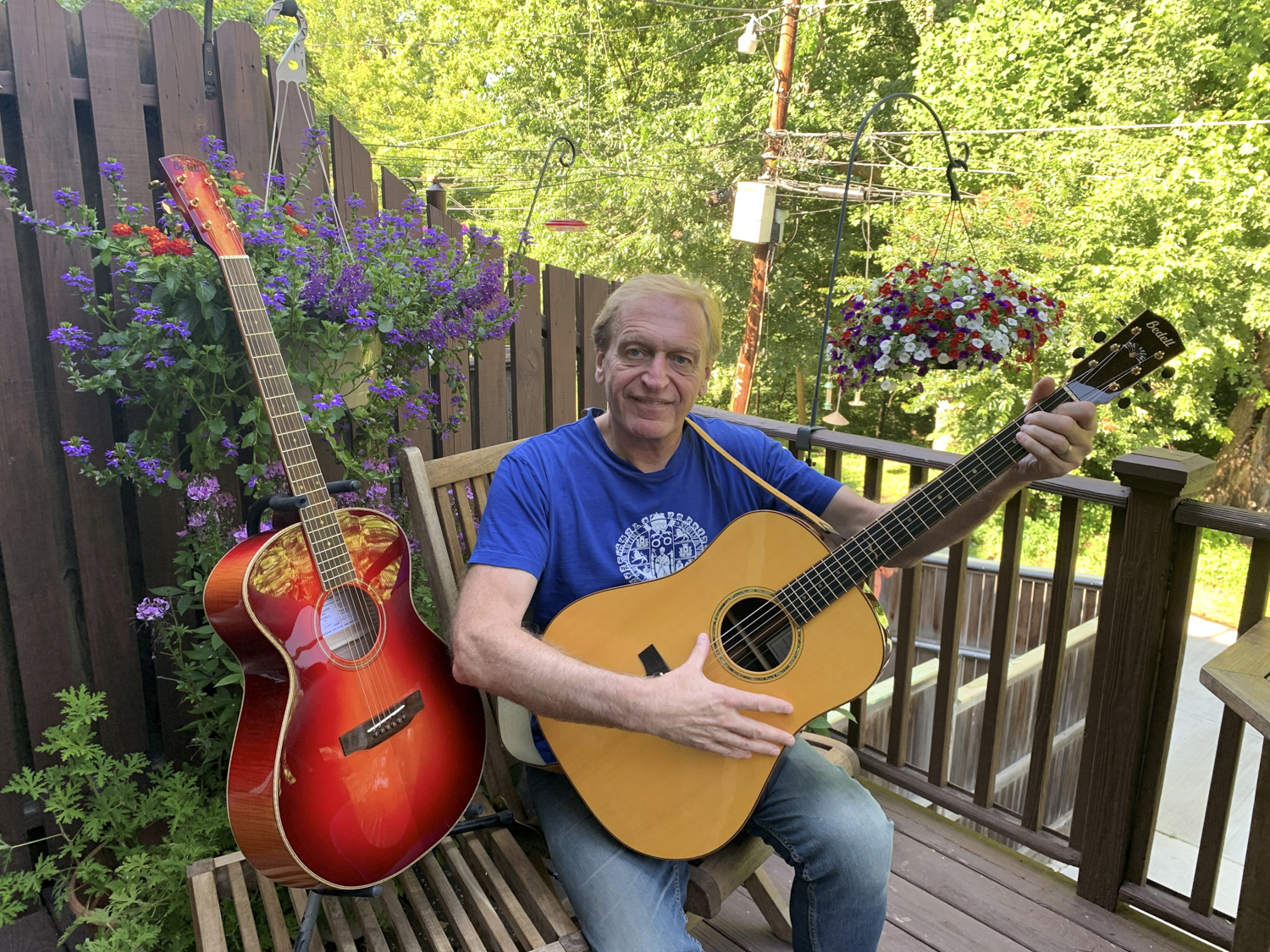
World Resources Institute’s Chip Barber thinks modern acoustic guitars —such as those of Breedlove’s new Eco Collection — can help fight the good fight
Charles “Chip” Barber isn’t just another six-string connoisseur, although he does have one-of-a-kind Bedell and Martin guitars in his collection. He is Director of the Forest Legality Initiative and Senior Biodiversity Adviser for the World Resources Institute, an environment-and-development policy institute with its global headquarters in Washington, D.C.
In 2015, Barber invited Breedlove owner Tom Bedell and filmmaker (and now Breedlove Marketing Director) RA Beattie to northern Madagascar on a trip that was both enlightening and heartbreaking. Bedell and Beattie learned a lot about where some of the finest rosewood for guitars is grown and how, but they also faced the revelation that much of the famed Madagascar rosewood is illegally harvested. Upon returning home, Bedell — devoted to his environmentally minded Seed to Song commitment — refused to build with 50 expensive sets of Madagascar rosewood already on hand, mistrusting the veracity of the existing paperwork.
Barber has continued to be an inspiring friend to Breedlove, helping Bedell and company learn more about the world’s endangered forests — from Mexico, Brazil and Ethiopia to China, India and the Netherlands — and how to keep some of the most exotic, endangered and beautiful species of wood safe for the future.
“My program focuses on the problems of illegal logging and associated trade,” says Barber, who previously worked for the U.S. State Department. “We’re expanding these days, also looking at wildlife trafficking, illegal fishing, illicit gold mining, a range of what we lump together as conservation crime. We’re an independent, nonprofit policy institute, a think tank, although we do a lot of action-oriented things.”
About Breedlove and its environmental initiatives, such as the new Eco Collection of guitars, Barber says: “I think Breedlove has been good at communicating the issues — while not being afraid of occasionally crossing swords a bit with other people in the industry. That can come with the territory. When it comes to business, people can be friends, but they’re competitors, too, of course, often with different perspectives on greening the industry.”
Barber’s parents owned and operated the famed Music Inn venue in Lenox, Mass., during the 1950s, and he also worked there in the mid-’70s for a subsequent owner. So, he grew up hearing much of the same life-changing, border-blurring music as Tom Bedell. After all, the Music Inn was a magical place, where iconic musicians from Woody Guthrie, Pete Seeger, Joan Baez and John Lee Hooker to The Band, The Eagles, Bruce Springsteen and Bob Marley performed. And, like Bedell, Barber grew up to become a player, and lover, of guitars. As such, Barber is pleased that those who create acoustic guitars may be ready to play their part in preserving the world’s great forests.
“Guitar manufacturers can certainly help,” Barber insists. “The thing about the instruments is that they can punch above their weight when it comes to the environment. They don’t represent a huge volume, but the acoustic guitar is a wood product that millions upon millions of people know. The added benefit with guitars is that you have the musicians who play them. They can be a very powerful ally. The flooring industry, for instance, doesn’t have thought-provoking advocates quite like that. I can’t think of many people who are going to stand up on a piece of flooring in front of an audience of 25,000 and make a beautiful sound with it!”
